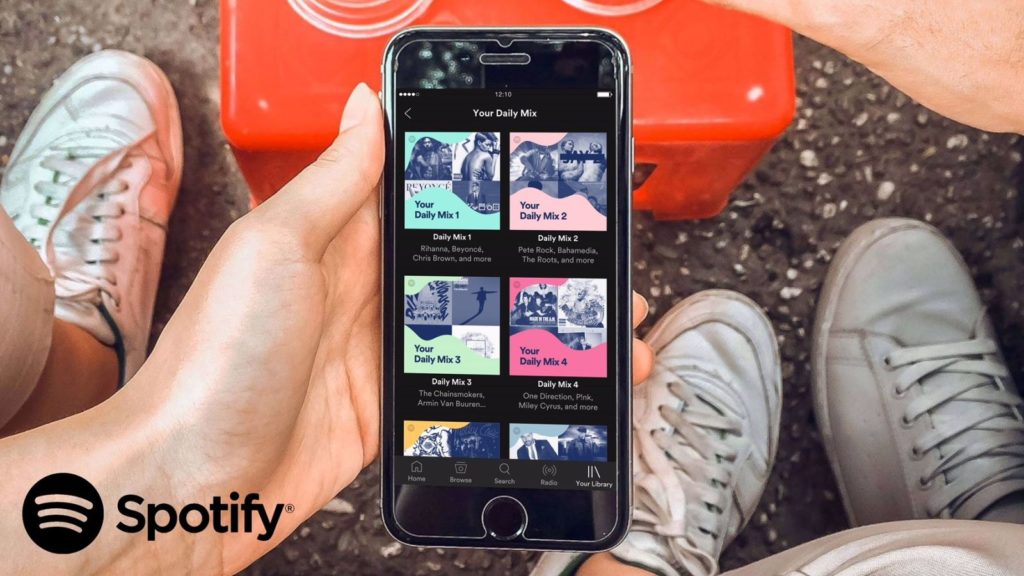The music geeks at Spotify on Tuesday officially switched on access to the service for South Africans, giving the country yet another streaming music platform to complicate their lives.
But is this such a bad thing? Competition is healthy, especially when said competition has different selling points and business models. For Spotify, it’s entered the market with (an initially small) focus on local content, its widely-used free-tier, and a relatively affordable monthly premium if you really like it.
No ad to show here.
“We have had the continent in our sights for a while and are finally able to offer South African fans access to all the music they already love on Spotify, while helping them to enjoy, discover and share new music from both local and international artists simply and easily,” explained Michael Krause, Spotify’s EMEA MD.
Personal and local curated playlists
While its unique selling point is curated playlists — and based on personal experience, they’re damn good — it has added country-specific playlists to its roster. These include genre-specific lists include specific genres lists for Gqom and Afrikaans music, and a “New Music Friday SA” edition which will likely enrich local music discovery.
It also promises future South African music charts as the offering matures in the market.
Personal music discovery is also big. The company will deliver a Daily Mix playlist to users daily. It’s a “series of playlists combining your favourite tracks with new songs we think you’ll love”. It also hopes its Release Radar — a playlist containing new music from artists you tell Spotify you like — and the upcoming Discover Weekly — a playlist based on your past week’s listening habits — will steal users from other platforms.
And these you receive on all tiers — free or paid.
No music upload, but ultra low streaming
Spotify’s library is seemingly its weakness. While its now reportedly stacked with 35-million tracks, that’s some five-million less than the figure quoted by Apple and Google for their streaming music offerings. The latter two allow users to upload their own audio files — Apple gives users room from 100 000 songs, Google half of that. Spotify doesn’t.
The company however is offering ultra-low bandwidth streaming for users on mobile networks. There’s a default streaming quality option of 24Kbps, which uses around 10.8MB of data per hour the company notes. (This can spike to between 96Kbps and 320Kbps when on WiFi.)
For data users, you’ll consume a little less than R5 per hour if you purchase 100MB for R29, but Spotify doesn’t seem to factor in advertisements or album art downloads in this equation.
Also, 24Kbps is a horribly low quality bitrate for headphone play. It might be fine for smartphone playback at a braai, but not ideal for personal enjoyment on public transport.
Free but ad-supported option
And lastly, the free tier is a big sell. More than half of Spotify’s 159-million users subscribe to the service via its advertisement-supported free tier. And it’s also not unbearable on desktop either. Users are unable to skip tracks, but that’s not an issue if playlists are attuned to your tastes.
The company also announced its advertising partners for South Africa, which includes Ballantine’s, FNB, Hunter’s, MINI and Pepsi.
“When people stream music their choices reveal a great deal about who they really are, what they are doing in that moment, and even how they’re feeling,” the company explained in a press release. “For brands and marketers, this presents an unparalleled opportunity to understand and reach their hard-to-reach target audiences in the right context, when they’re already engaged.”
The company was quick to note that Spotify’s content and playlists can also be shared on social media, adding to the platform’s utility as a marketing tool.
For Spotify, advertising may soon be a more important source of revenue after its bow on the New York Stock Exchange in April 2018. And at its quoted share price, the firm may be worth more than US$23-billion.
But where does South Africa fit into the company’s future plans? For now, it seems like a tentative dip of the toe into the massive potential African pool, and a possible expansion opportunity for its mobile-first advertising ambitions.
For South Africans, you’re getting another streaming music option. And yes, that definitely isn’t a bad thing.
Feature image: Spotify
